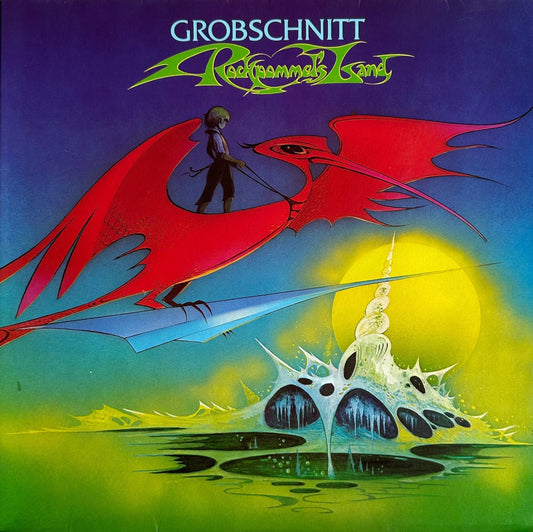Pleased to read the article regarding tinnitus. Tinnitus is a problem that confronts many people with or without hearing loss. There is no one cause for tinnitus; it can be the result of noise exposure, hear trauma, medication, etc.
Tinnitus can be due to problems in the peripheral or in the central auditory system.
Tinnitus should not be considered lightly. Unfortunately, it may be the sign of a tumor located in the area of the auditory nerve and,thus, should be medically investigated, preferably by an otologist. I recall having a patient who was in his early 20s and a professional musician come to my office. His report was that he had experience hearing loss and had tinnitus, bilaterally. Upon exam he had A classic noise induced hearing loss, bilaterally, with most of the hearing loss between 3000 and 6000 Hz which was probably due to the years of exposure to high levels of sound. However, when sent to an otologist his radiologic studies showed the presence of an VIIIn tumor in one ear.
The point here is that this history and audiogram exam would provoke one to stop the exam process once the hearing loss was revealed, since the configuration of his audiogram was typical for noise exposure and bilaterally symmetrical. However, that was not the case and fortunately the tumor was uncovered.
In sum,then, tinnitus must never be assigned to hearing loss, or noise exposure, or drug usage, but must be fully investigated.
Laurence Rosenblatt, Ph.D.
Audiologist
The Perpetual Pilgrim
My nephew, Andres, has turned his audio hobby into a religion. He takes his quest for the ‘Ultimate Sound’ as seriously as the quest for eternal life. He is consumed by audio nervosa and spends his free time studying audio magazines and websites to find absolution for his past buying decisions, and blessings to make changes. Recently, he even sacrificed the value of a pilgrimage to Rome in favor of new interconnects — based solely on a decree from his most trusted bishop, a ‘Golden Eared’ reviewer in one of the magazines.
He invited me to spend the weekend at his apartment to solicit confirmation for his pricey investment. When I got there, he raved about the ‘night and day’ difference using the vernacular of reviewers: romantic richness, sweet delicacy, fatigue-free tonal lusciousness, liquid voluptuousness ………… I’m beginning to suspect he needs a girlfriend.
I could neither confirm nor deny any audible improvement as I wasn’t sufficiently familiar with the sound of his system, but I was skeptical of his claims. So I decided to conduct a test. Overnight, while on a bathroom break, I switched his anointed interconnects with my Radio Shack ‘Gold’ cables — which can be purchased for the price of a Roman candle.
While sipping coffee the next morning, Andres opened his stereo cabinet and played his favorite SACD, The Mission soundtrack, from beginning to end. He turned up the chorale to concert hall volumes and praised the sound.
He had no idea he was listening to the profane ‘Rat Shack’ cables. It was clear that the ‘night and day’ differences he raved about was not apparent the day after the night. His belief that the new cables were in play was sufficient to justify his enthusiasm. This experience confirmed to me that people do not have reliable perceptual capabilities. Perception is cognitive and the brain tends to be the dominant factor – the brain tells them what they experience more than their senses.
The most publicized case in point concerns Trader Joe’s house wine, ‘Two Buck Chuck,’ as Charles Shaw’s Chardonnays are known. They got less respect than Rodney Dangerfield until the 2007 California State Fair’s Commercial Wine Competition. There, 64 judges awarded it the prestigious Double Gold award. That placed it first not only over 350 other Chardonnays, but on top of the entire collection of 3,029 wines! Wine tasting competitions are always conducted blind. Would the judges have ranked “Two Buck Chuck” as highly had they been able to see the label? When faith in price, status or reputation is eliminated from the equation, judgments change.
How different might the annual ‘Recommended Component Buyers’ Guide’ be if audio components were evaluated like wines? Would ‘night and day’ differences be confirmed or non-existent in a double-blind testing protocol? It’s one thing for a reviewer to claim a component is superior, it’s quite another to prove it. When a reviewer recommends expensive upgrades without evidence of their primacy (and expensive equipment is virtually always deemed superior in the media), he is asking followers to part with their money on the basis of faith.
Nonetheless, Andres agonizes over the words in the ‘Recommended Components List’ like St. Augustine over the Scriptures. He has a divine belief that these products are accurately appraised by sound quality — despite a complete lack of evidence to that effect. For the most part, products with good reviews sell, and those without, don’t. That’s a lot of power to put in the hands of a few pundits with questionable hearing, motives and methodologies. How many good products have gone by the wayside due to the prejudices and preconceptions of reviewers? Conversely, how much snake oil is still on the market for the same reason?
In a recent e-mail, Andres wrote, “I still don’t feel like I have my arms around my system, the big picture, yes, but the subtle things that ultimately define it, not yet…….hoping in the process to do that endless loop of keeping my ears tuned, attentive, and aligned with others.”
I have no idea why he thinks his young ears have to be “aligned with others”? What is it that he wants to get his “arms around.” Like sex, music is an emotional, not an intellectual activity. Constantly nit-picking the equipment ruins the experience.
Someone once said, “You can’t know what’s best is unless you have heard everything.” Andres will never have sufficient time nor energy to audition everything. Even if he could, he’ll never know how his ultimate system would compare to the live event unless he’d attended it. And even if he had, his health, mood and the location of the seat he chose would affect his memory of the performance. That’s taking for granted there was a live performance, and he’s not listening to a synthetic creation of the recording engineer.
Even assuming his acoustic memory of the live event is impeccable, the recording flawless, and his ‘dream system’ provided perfect fidelity, his listening room acoustics will distort the sound enormously — as any pair of studio headphones will demonstrate.
Andres needs to see the light and accept the fact that every facsimile of the live event is corrupted and deficient. If his system is capable of turning him onto the music, if it takes him to a blissful state, his prayers are answered. This endless search for the Holy Grail will only keep him a perpetual pilgrim.
B. Jan Montana



